Commencement Speaker Finds Purpose to Give Back to Neighborhood
May 16, 2025
Posted by STLCC in News Resources
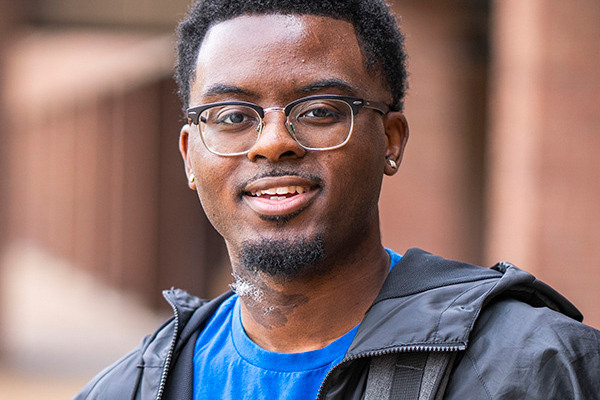
Benie Edwards always believed in her grandson; always encouraged him to do great things;
always served as his cheerleader.
The path to Jordan Hughes’ success hasn’t been straight, not for most of his life.
Really, he finds himself on a new road, one nearly at its beginning. His destination
is for a different life that leads him back to his old neighborhood. It started in
the middle of the City of St. Louis and led him to St. Louis Community College, from
which he will graduate with a 3.95 grade point average with an associate in arts in
general transfer studies. Next is a four-year degree in political science at the University
of Wisconsin-Madison and then, possibly, law school.
“I think my main goal is to get into a position where I can make change in the communities, like where I come from,” said Hughes. “I really want an understanding of the structure of politics. That’s something that's undervalued in the community I come from.
“So, I think to start, I have to understand the framework that governs us because, if we can understand whether something within the framework is wrong or isn't working for us, we can make changes. But not many people understand how to fix it. So political science would be a good avenue.”
Hughes finds himself where he hardly could have imagined when he graduated from high school with a 1.9 grade point average and an academic career marked more by detentions and suspensions for skipping school than for achievements.
Oh, he could achieve. He started reading around the age of four. He won a poetry contest in middle school without wanting to enter it. A teacher gave her failing student more challenging work because she knew he could handle it. He understood the material; he just didn’t care. He didn’t want to stick out as “smart.” He didn’t see the point.
Why should he?
No Future
He didn’t have much of a future. He didn’t see one, at least. Most of the people around him found belonging and income on the streets. His parents didn’t envision that for their children, but Hughes was at least curious about it. While in grade school, he enjoyed hanging out with his older brother, Gibb Hughes, Jr., who, while only two years older, was much more familiar with the street life.
“The life that you see in the hood, especially for a young black kid who hasn't been exposed to many other examples of black excellence, it had an allure,” Jordan Hughes said. “The people who look like they are winning in life, honestly, are the drug dealers. They're the ones that have the nice cars, the nice girls.”
That’s why, with most of his family at the Great Forest Park Balloon Race, Hughes wanted to hang out with his brother at a block party filled with teens and young adults. It’s why after the party broke up, he refused to go home despite his brother’s insistence. Hughes wanted to be one of the guys, to see what it was like to be on the streets at night. An 11-year-old boy who should have been home – he told each of his parents he was with the other parent – was enjoying being with the older kids.
Then he got shot.
A car sped around the corner, stopped near Hughes’ group and someone in the car opened fire with an automatic weapon. Hughes froze.
A bullet struck him in the left calf, sending him tumbling down a hill. He landed just underneath the open window where the gun was positioned, his arm against the back tire. Believing the safest place was with Gibb, Hughes ran directly toward his brother and directly back into the line of fire. A second bullet found his right foot.
The shooter’s car sped away as Hughes lay on the ground bleeding. Neighbors wrapped the wounds and soon his mother and father were at his side. He spent nearly a week in the hospital.
Hughes’ parents had stressed to all their children – he now has 11 siblings – not to be fooled by the fancy cars and the big chains around the necks of the people in the neighborhood. His parents Gibb Edwards, Sr., and Tracey Edwards always reminded their children that the money and glitz they saw on the street was never permanent. There was a short shelf-life to the lifestyle, and it always ended with the person detained, desolate or dead.
“I’m glad that incident detoured him from even glamorizing it even more,” Gibb Hughes, Sr., said. “Everyone out there with the jewelry and cars had guns. Jordan didn’t glamorize it anymore.
“I’m glad he saw it, but I’m not happy by the way he went about accomplishing it. I am glad he got his mind off of that. And he’s doing pretty good now.”
The incident provided Hughes an impetus to focus on school and find a purpose outside of the street life that he had once found appealing.
At least, maybe it should have.
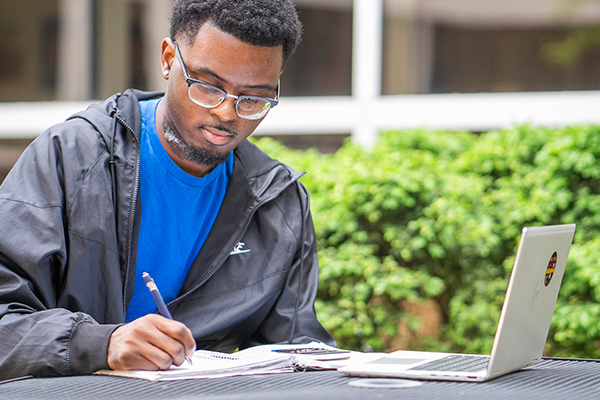
Needed Push
He went through middle and high school with little motivation, missing classes on a regular basis, not taking his education seriously. He knew he wanted to avoid the situations some of his friends got into, such as when he turned down an invitation to go cruising in a stolen car, but he didn’t see a clear path away from where he grew up.
He tried college. The fall after graduating high school, he matriculated to a four-year university but lasted just one year. The future Hughes had always seen for himself started to materialize and it felt like there was no way of avoiding it.
Then, in early 2020, he learned of a warrant in his name and a court date. He had several outstanding traffic tickets, and the prosecuting attorney offered him a choice: give up his license for multiple years or go to court. Hughes insisted the tickets didn’t belong to him and refused to take the plea.
He knows what happened. Someone used his state-issue ID card whenever they got pulled over for traffic violations. When the fines didn’t get paid, the court system went after Hughes.
He chose to defend himself in court. He studied a primer on the court system for a few weeks, and though he clearly didn’t have full knowledge of the system, he clearly impressed the judge.
Hughes won. All charges dismissed.
It was a rare win for a self-representing defendant; even more rare for a young Black man. It moved the bailiff to leave the courtroom and find Hughes.
"What are you in school for,” Hughes recalled the bailiff asking. “What are you doing with your life?”
That interaction didn't change Hughes’ perspective on the spot but proved important in pushing him toward higher education and to find a greater purpose in life.
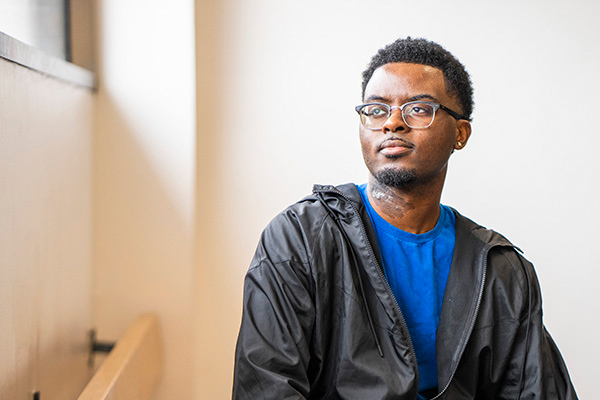
The Future
Hughes worked full-time for an insurance company at the time he went to court and spent a total of two years in that industry. But he knew he needed to get back to school and, this time, commit to doing well. About two years after winning his court case, he enrolled at the College.
“STLCC provided Jordan with a second chance, and he took full advantage of it,” said LaShanda Boone, PhD, vice president of multicultural affairs. “We offered him a supportive environment, access to dedicated faculty and mentors, and the resources to not just catch up but truly thrive.
“What makes Jordan’s story so powerful is that he did the work. He showed up, stayed focused and leaned into the opportunities that were available to him.”
As he prepares to walk the stage at commencement and serve as the student speaker, Hughes continues to build a brighter future than he once believed possible. It’s a future that his mom’s mom, Benie Edwards, knew possible despite where they lived. When Hughes was young, Edwards would read him books about the women’s suffrage movement, the biography of Malcom X or other historical material. She wanted him to do more, reach higher than his life circumstances.
She’d regularly ask him: What do you want to be when you grow up? He’d always answer, “rocket scientist.”
“And then she’d say, 'okay, you’re going to be a rocket scientist,' with a certainty in her voice that truly made me believe it was possible,” Hughes remembered.
After he was shot, Hughes didn’t visit his grandmother as much because she lived in the neighborhood where the shooting occurred. She died when he was 14 and he regrets that he missed so much time with her.
His parents have always been supportive. Even though they divorced when he was 11, both are integral parts of his life. But the seed that Edwards planted when Hughes was just a boy, a seed that took maybe more time than she had hoped, is beginning to sprout.
“There are dueling perspectives, where I’m from, between what you hear you can be and what you see," Hughes said. “My grandma was the one who instilled in me that I could be anything I set my mind to.”
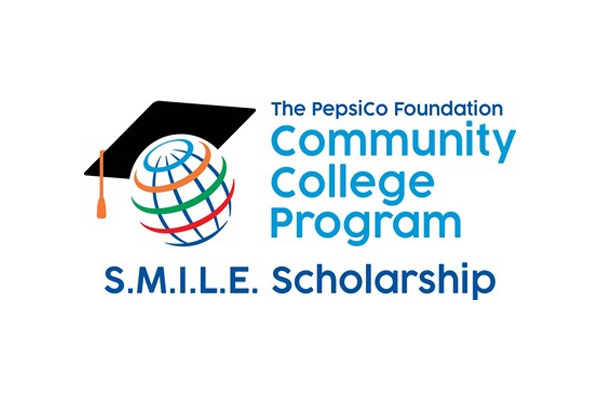
STLCC Announces Winners of the PepsiCo S.M.I.L.E. Scholarships
Three STLCC students awarded PepsiCo S.M.I.L.E. Scholarships to advance their education and careers.
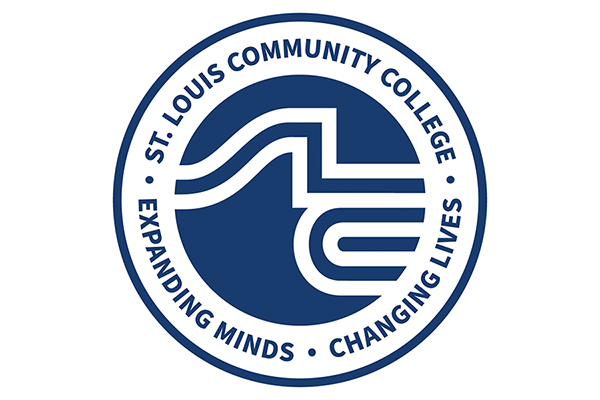
Celebrating Faculty Excellence: Promotions Across STLCC
STLCC honors faculty promotions across disciplines, celebrating their dedication to education and student success.

St. Louis Community College Celebrates Passage of Transfer Bill
Thanks to the Core Transfer Act, STLCC students can transfer general ed credits easily to any Missouri public...
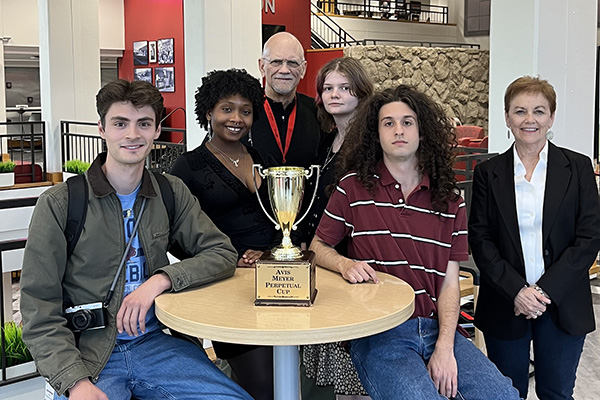
The Scene Wins Best in State
STLCC-Forest Park’s student paper The Scene won Best in State at the Missouri College Media Association conference, topping schools of all sizes.
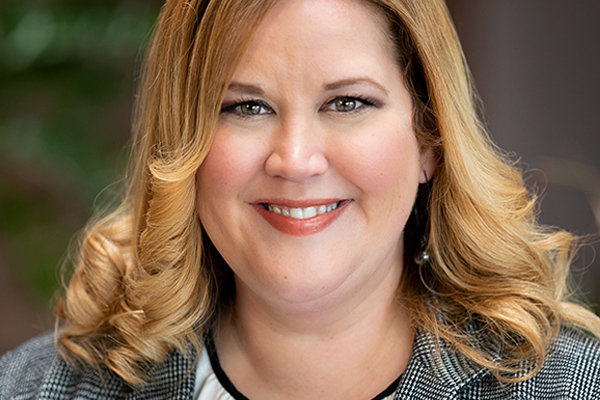
Double Honors: STLCC-Florissant Valley and its President to Receive NCI Awards
STLCC-Florissant Valley and President Dr. Perkins earn top honors from North County Inc. for leadership and community impact.
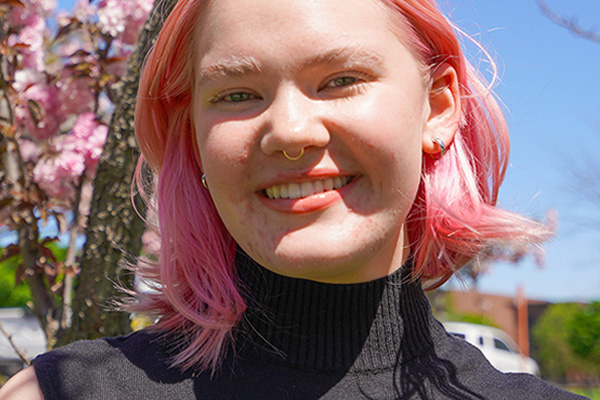
PTK Members Elect STLCC Student as International Leader
STLCC student Lulu McGowan elected 2025-26 international president of Phi Theta Kappa, representing 230,000 students worldwide.